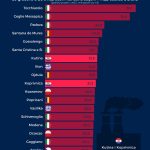One of Croatia’s most successful entrepreneurs and a passionate supporter of start-up businesses through his co-founded Zagreb Entrepreneurship Incubator, Sasa Cvetojevic has years of experience in the healthcare sector, mobile communications industry and supply chain management in Croatia, and he is the founder and owner of a number of companies and health care institutions in the country, as well as a prominent angel investor. Sasa caught up with Total Croatia News on December 30, 2015 to talk about the recent elections, the arrival of Uber, and the business climate in Croatia.
1. Firstly, of course, your comments on the soap opera of the last six weeks. Are you positive about the election outcome and what do you make of the appointment of Tim Oreskovic?
Over the last two months we have witnessed one very dirty political campaign, then a harsh battle in extra time, with one side winning in the penatly shoot-out. Personally I believe it would have been much better for one party to have won a majority, and not to gain power in a broad coalition. It is harder to effect reforms with a coalition in power.
I am not sure what to expect since I have been disappointed so many times in the past, but somehow I feel that Mr. Oreskovic can be a person who might bring positive change. The main question is how much political power he will get in order to carry out the necessary reforms.
2. You were the first person in Croatia to taken an Uber taxi. Tell us how that happened, and are you surprised at the reaction to Uber’s entrance into the Zagreb taxi market?
Yes, I was driver zero. Uber contacted me and invited me to try the service first since they saw me as a potential promoter of the service. I have always been a big supporter of new business models and the digital economy in general, and I had already tried Uber abroad, so I was excited when I found out they were going to launch Croatia.
The negative reaction of established taxi companies didn’t surprise me at all. We are over-bureaucratized on all fronts. Groups that enforced the so called ‘regulations’ were already violent when any kind of competition was seen on a horizon. So, they were opposing Uber even so that Uber would come not as a total competitor, but as an extension to their existing business model. But change is something that locally protected taxi drivers do not want, and they are ready to fight in order to keep the positions they have.
3. Recent reports indicated that Croatia has the largest number of start-ups in Central Europe, as well as the best start-ups in the Balkan region. Why is that do you think, and tell us a little about the business climate in modern Croatia.
Croatia was the first to start building a startup ecosystem, and now we are starting to see the benefits. It is still not a significant improvement, but more and more creative people are encouraged to start projects based on their knowledge and execution of great ideas. Of course, the government had nothing to do with it, it was a result of a few initiatives that arose from the community. A few years later, the government jumped on the bandwagon and starting promoting startups by giving some grants. Again, those procedures were not really compatible with the mentalities of startup founders, but they were better than nothing. In general the business climate in Croatia is far from ideal. Entrepreneurs are still perceived by the majority of government officials as something not so positive, procedures are complicated, the legislative framework is illogical and constantly changing. For any interaction with local or state administration, you need too spend too much time and nerves when the focus should be on the business in hand.
This is one of the reasons why startups and generally ICT companies blossom. They need less contact with administration, they mostly do export, and they are walking the roads that bureaucrats have not understood yet. So they are not regulated and not even understood by most of the people, and this enable them to concentrate on growth, execution and making new things instead of playing games with licences, approvals, documentations and other ‘necessary paperwork’.
4. From a business and entrepreneur viewpoint, what key initiatives would you like to see from the new government?
Financial consolidation is the first goal.
The second one is a complete set of reforms that will make a Croatia at least little bit more competitive.
Every foreigner sees that Croatia is a nice place to live in, but the new government needs to make it a nice place to do business, or at least to work in.
5. Croatia is a country rich in potential whose bureaucracy has frustrated many foreign investors. Would you encourage foreigners to look at investing in Croatia currently, and what advice do you have for those thinking of doing so?
If you are considering investment in Croatia, take a local counsellor – the best would be someone with experience in your exact field. He is sometimes more important than a good lawyer, since there are often many hidden things that cannot be seen by the legal framework, especially at first sight, that can work for you or can harm your investment.
But since things are getting better and better, now may be the time to consider some potential that Croatia have to offer. Tourism is the one that is obvious on a first sight, but you may find some other sectors that can benefit due to good geographical position, some skilled labor force or tax incentives for foreign investors.
6. Croatian technology start ups seem to be doing particularly well. You have been involved in initiatives such as Start Up Island on Hvar, and the Zagreb Entrepreneur Incubator. Can you tell us a little about the success of these, and how you see their future expansion?
ZIP, our incubator, is going well. Our coworking space has become one of the unavoidable places in Zagreb and the region for startup events. ZIP also has assisted in many other interesting activities like Crowdfunding Academy, Startup Wednesday and Pioneers of the Balkans.
Startup Island was an interesting event, a small boutique type conference where startup founders could meet investors in a more informal atmosphere. But since it was held on Hvar, a beautiful but remote island, it was really a big burden on our resources. We have decided not to continue with this conference in future.
Next year, we are going to concentrate on accelerating the programmes in ZIP, in order to help some startups in later phases with initial investment, mentoring and coaching – in order to make their product and business model better and to make them ready for VC investment and expansion to foreign markets.










